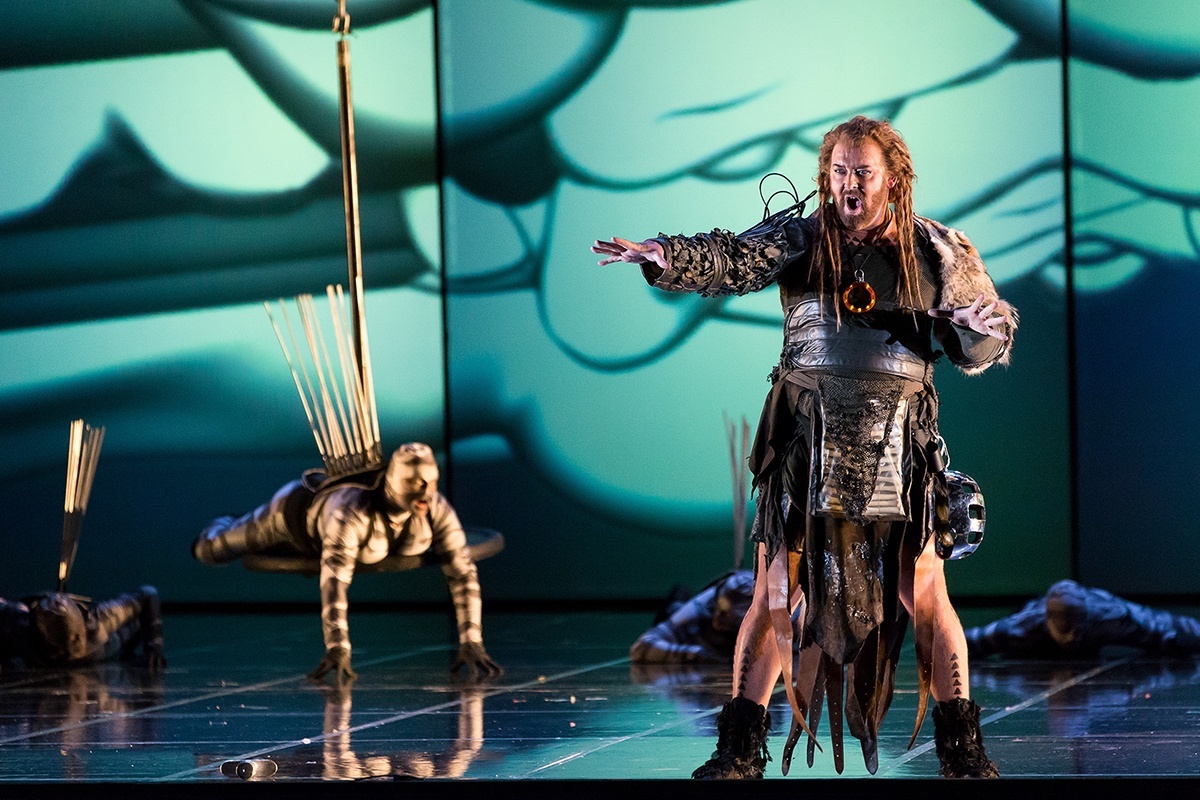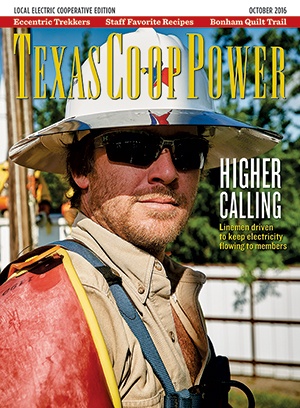Since New York City’s Metropolitan Opera opened in 1883, almost every international singer has performed in its world-renowned productions. When Jay Hunter Morris performed on the Metropolitan Opera stage in the title role of Wagner’s Siegfried, he joined that rarefied group. His story is more remarkable than many others because the genesis of his career was a dramatic distance away, physically and culturally—in the East Texas town of Paris.
There isn’t a hint of East Texas drawl when Morris sings, but he is quick to point out that Paris is where he found his place and his voice. He grew up the son of a preacher who moved the family frequently. He recalls homes in the Houston-area town of Pasadena, a small town in Arkansas and then Fort Worth. When he was 13, Morris’ family settled in Paris after the death of his father.
“Paris is home,” Morris says.
Typical of many performers with Southern roots, Morris’ first exposure to music was in church. “A lot of great singers, not only opera, but pop singers, and especially R&B or soul singers, all grew up singing in the church,” Morris says.
Morris first decided that singing would be his profession after he heard Larry Gatlin in concert. What he didn’t anticipate was the winding road that would take him to Paris Junior College and Baylor University, then finally to the acclaimed Juilliard School.
Early on, Morris thought he might go into gospel or country music, but he saw an opera when he was 25 and was mesmerized. He found it fascinating to sit in a 3,000-seat house with a 70-piece orchestra and hear the performers projecting their voices into the enormous space without microphones.
He had discovered his vocation.
In some tales of the theater world, a talented understudy works hard but remains unseen and unknown in thankless roles. Then one night, the star cannot perform, and the understudy steps in at the last moment.
That is exactly what happened for Morris in the 2011 production of Siegfried—the star (who was actually the replacement for the original singer, who also had canceled) bailed out less than a week before opening night. Siegfried is a role that only two or three tenors in the world can sing—but one of them is Morris. He stepped in with the confidence of someone who had been preparing to make such a splash all his life, even wowing the critics who were skeptical of the newcomer, not just because they hadn’t heard of him, but also because his twangy Texas accent suggested an unorthodox background.
“I got a big break,” he says with a hint of irony.
The acting is demanding and the show long—five hours—but a critic from The New York Times praised Morris’ performance as “a real achievement” and commended Morris on his ability to lyrically bend a phrase.
He has been singing the role ever since, reprising it for an almost-hometown audience at the Houston Grand Opera in spring 2016.
Places provide the backdrop for the people we become, but it is the people around us who shape and mold us. Morris’ father continues to influence who he is as a husband, an artist and as a father himself. Now Morris’ son inspires him and keeps him focused on what is important.
“My parents instilled in me values that are embedded deeply in faith and in being a good human being above all things,” Morris says. “It is more important than how much money you make and what you do for a living.
Morris knows his career is unusual. The places Morris visits and the people he meets allow him to interact with the world in unexpected ways. While touring, he often chronicled his adventures in emails to his family. That correspondence formed the foundation of a laugh-out-loud book called Diary of a Redneck Opera Zinger (Opera Lively Press, 2013). Morris describes the book as “equal parts autobio, inspiration and unrepentant potty humor.”
“I seem to be a magnet for chaos,” Morris laughs, “and that is where the funny stuff happens.”
The book offers a peek at the collision of two vastly different worlds—the rarified air he inhabits in the arts and the earthiness of his upbringing as the son of a clergyman. “This was a collection of emails I sent to my mom and sister, telling them what it is like to be a country boy singing in opera houses all over the world,” Morris says.
For all of the travel, accolades and acclaim, Morris maintains that he is just a “small-town guy” who was blessed to find his passion in opera.
Opera, he says, is a way of singing that does not come naturally to many people, including him. “It is a lifetime’s work to find the technique to produce that kind of sound with that kind of volume in a beautiful and elegant way,” he says. “I’m still trying.”
The disciplined pursuit of the art form is what has driven him for so long. “I love the pursuit of this vocal technique,” he says. “It’s not easy, but it is great fun to try to figure it out.”
Morris’ years of training have honed his voice and acting, and he looks forward to the roles that await him. “I did find my passion, and I found an art form that I am just feverishly passionate about,” he says. “I’ve learned that my passion and my training will override and defeat my country accent and my hometown flair. I can overcome that with hard work and good singing. I’m just now ready to do my best life’s work, and that is exciting.”
——————-
LaDawn Fletcher writes about Texas from her home in Missouri City.


